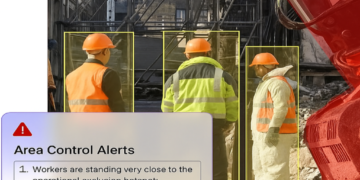In today’s competitive and fast-paced work environment, employee well-being is a critical aspect of a company’s success. While factors like workload, office culture, and management style are often discussed, one of the most powerful yet often overlooked contributors to an employee’s mental health and well-being is recognition.
Recognition goes beyond the simple acknowledgment of work. It’s about showing appreciation, validating an employee’s efforts, and making them feel valued. This feeling of being recognized has profound effects on both professional performance and mental well-being. In this blog, we’ll explore the undeniable link between recognition and mental well-being at work and how companies can harness the power of recognition to improve employee health and productivity.
1. What is Recognition in the Workplace?
Recognition at work refers to the act of acknowledging an employee’s efforts, achievements, and contributions in a meaningful and positive way. This could be as simple as a verbal thank you after completing a task, a formal award for an achievement, or a public acknowledgment in a meeting. Recognition can come in many forms:
- Verbal appreciation: A quick, sincere “thank you” or praise during a meeting.
- Formal awards: Employee of the Month titles, performance-based awards, or milestone celebrations.
- Peer-to-peer recognition: Encouraging employees to recognize one another for contributions.
- Monetary rewards: Bonuses, raises, or other financial incentives.
When done properly, recognition fosters a sense of accomplishment and reinforces positive behaviors and work ethics.
2. The Impact of Recognition on Mental Health
Mental well-being in the workplace refers to an employee’s emotional, psychological, and social state. Employees who feel good about themselves are more likely to perform well, be engaged, and contribute to the overall success of the organization. The positive effects of recognition on mental health are profound and multifaceted. Here’s how recognition enhances well-being:
A. Boosts Self-Esteem and Confidence
When employees are recognized for their efforts, it reinforces their self-worth. Acknowledging their hard work in front of peers or in a private setting sends the message that they are valuable and integral to the team. This appreciation helps to build confidence and allows employees to feel more secure in their role, fostering a sense of pride in their work.
B. Reduces Stress and Anxiety
Feeling unappreciated can lead to stress, burnout, and anxiety. Constantly striving without recognition can create feelings of frustration and helplessness. Recognition counteracts these negative feelings by providing reassurance. Employees who are recognized feel validated and are less likely to experience work-related stress because they know their efforts are acknowledged and valued.
C. Fosters Positive Relationships
When employees feel appreciated, they’re more likely to develop positive relationships with their peers and managers. A culture of recognition leads to an environment where employees are not just motivated to work hard but are also more inclined to support one another. These supportive relationships create a positive work culture, which is essential for mental well-being.
D. Prevents Burnout
Burnout is a major issue in today’s work culture, and lack of recognition is one of the key contributors. Recognition helps alleviate the effects of burnout by reminding employees that their hard work is not going unnoticed. Frequent appreciation can act as a motivator to keep employees engaged and reduce feelings of exhaustion that often lead to burnout.
E. Increases Job Satisfaction
Recognition leads to greater job satisfaction because employees who feel appreciated are generally more satisfied with their roles. Job satisfaction is directly linked to mental well-being because it influences how employees perceive their work-life balance and overall happiness in the workplace. When employees experience frequent recognition, they’re more likely to enjoy coming to work every day, which can have a positive impact on their mental state.
3. The Science Behind Recognition and Mental Well-Being
Numerous studies have shown that recognition significantly impacts employees’ mental health and performance. For example, research from Gallup indicates that employees who feel strongly recognized are more likely to report higher levels of well-being and engagement at work. This same study found that employees who receive recognition at least once a week are significantly more likely to have high levels of job satisfaction and low levels of stress.
Additionally, the psychological principle of operant conditioning explains why recognition is so effective. When employees receive positive feedback or rewards, they’re more likely to repeat the behaviors that led to that recognition. This creates a cycle of positivity, boosting morale and reinforcing a healthy work environment.
4. How Recognition Enhances Mental Well-Being: Real-Life Examples
Let’s take a look at some real-life examples of how recognition leads to improved mental health in the workplace:
A. Personal Stories and Testimonials
Employees often share how recognition has made a difference in their mental well-being. One common theme in these stories is how small, personal recognition moments can help alleviate anxiety and foster feelings of belonging. For instance, an employee who has been struggling with self-doubt may feel immense relief when their manager takes the time to acknowledge their contribution to a successful project. This simple act of recognition can boost their self-esteem and lessen feelings of inadequacy.
B. Case Study
Laser Craft India is a perfect example of a company that understands the link between recognition and mental well-being. The company implements regular employee recognition programs, which include monthly “shout-outs” during team meetings where employees are publicly praised for their hard work and contributions. This culture of appreciation not only enhances job satisfaction but also contributes to better mental health outcomes. Employees feel a sense of belonging and are more motivated to contribute, knowing their efforts are valued.
5. Best Practices for Implementing Recognition Programs
Creating a recognition program that effectively enhances mental well-being requires thoughtful planning and execution. Here are a few best practices to ensure that your recognition efforts are impactful:
A. Make it Regular and Consistent
Recognition should not be a one-off event. To truly enhance mental well-being, recognition needs to be consistent. This can be achieved through regular feedback, daily acknowledgments, or scheduled events that highlight individual and team accomplishments. Consistency in recognition creates a steady stream of positive reinforcement that employees can rely on.
B. Be Specific
Rather than generic praise like “Good job,” focus on being specific. Recognize not just the result but also the effort, creativity, or teamwork involved. For instance, instead of saying “You did great,” try, “Your attention to detail on that project was impressive, and your dedication really helped the team succeed.” Specific recognition shows employees that you value the quality of their work and not just the output.
C. Make It Personal
Personal recognition, especially in front of a team or the company, has a greater impact on mental well-being. When recognition feels personal and heartfelt, employees are more likely to feel appreciated and valued. Managers can take the time to write a personalized thank-you note, set up a one-on-one meeting, or even recognize an employee’s personal achievements outside of work. A personal touch creates a deeper emotional connection.
D. Encourage Peer-to-Peer Recognition
While manager-led recognition is vital, encouraging peer-to-peer recognition creates a supportive environment where everyone feels appreciated. Platforms like peer-nominated awards, shout-out boards, or team recognition sessions promote a culture of kindness and appreciation that fosters mental well-being across the entire organization.
E. Ensure It’s Inclusive
Make sure that all employees have an equal opportunity to be recognized, regardless of their role or tenure. This inclusivity ensures that every employee feels valued, which contributes to a positive mental state. Having a fair and transparent recognition system also prevents feelings of favoritism and isolation.
Conclusion
In today’s workplace, recognition is more than just a nice-to-have perk—it’s essential for the mental well-being of employees. The simple act of acknowledging an employee’s hard work not only boosts their self-esteem but also reduces stress, fosters positive relationships, prevents burnout, and improves overall job satisfaction. It’s clear that recognition is a powerful tool for improving mental health and creating a positive work culture.
By implementing effective recognition programs, organizations can reap the benefits of enhanced employee well-being, increased productivity, and a more engaged workforce. Recognition truly has the power to transform the workplace, one moment of appreciation at a time.



















